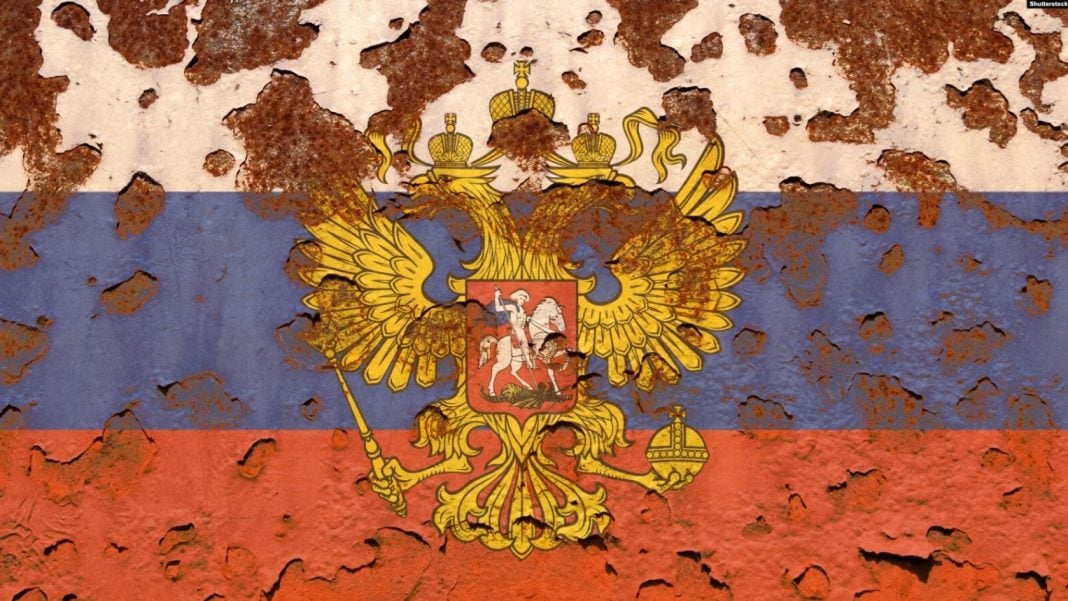By Kseniya Kirillova, for CEPA
Russian efforts to question Ukrainian statehood have not developed as intended.
Pro-Kremlin analysts have devised a new argument in their campaign to prove that Ukraine is not a real country.
The argument is central to Russia’s war of aggression against Ukraine, a national entity whose roots date back to at least the 9th century. If, as the Kremlin argues, the country is nothing more than a natural part of Russia, then its existence can surely be erased without consequence to the other 192 members of the United Nations.
The latest iteration of this slightly eccentric Russian argument emerged from Timofey Bordachev, program director of Vladimir Putin’s favorite think tank, the Valdai Club. He wrote on August 19 that Ukraine was a “non-state” because it displays “a readiness to sacrifice itself completely and to carry out the orders of others in questions of war and peace.”
The Valdai expert extended this logic to argue that by defending its territory, Kyiv is actually executing the will of the US and, thus, does not have its own foreign policy, which deprives it of the status of statehood and lowers it to the level of “a terrorist organization.”
Thus, Bordachev writes, it is impossible to negotiate with the Ukrainians about recognizing Ukraine’s right to exist since “the living cannot conclude an agreement with the dead, nor stone with wood.”
This raises a number of objections, not least the application of this standard to the Kremlin’s client government in Belarus, which has spinelessly done everything demanded by Vladimir Putin to assist the erasure of Ukrainian independence. It also passes over Russia’s numerous past acknowledgments of Ukraine as a state following independence in 1991.
More directly, it is worth asking how Russia measures by the same tests.
One of the main features of a nation is internationally recognized borders (something lacking for independence-seeking peoples like the Kurds or the Karen rebels in Burma.) Recognized borders for the Russia of Vladimir Putin’s imagining have been lacking since 2014, when the Kremlin illegally annexed Crimea, and invaded Eastern Ukraine.
That issue deepened in the fall of 2022 when the Kremlin further blurred the concept of Russian borders by incorporating four captured Ukrainian regions into the Russian state. Propagandists admit that Moscow does not actually control parts of the so-called “new territories”, implicitly acknowledging that the new, expanded Russia contains not just occupied territories but also a wish list of yet-to-be-conquered lands.
The argument has been further muddied by August’s Ukrainian counter-offensive in Russia’s Kursk region. The Kremlin has now lost more than 400 square miles of land — territory that is acknowledged by the international community to be part of Russia. According to the Ukrainian side, 92 settlements have been captured.
This is more than just a military offensive; it’s also a demonstration of the fragility of Russian statehood. Russia’s military, and the civil authorities at both the federal and local levels, were completely unprepared for the invasion, something they had been warned about in advance.
Putin has now appointed his former bodyguard, Alexei Dyumin, to head the “counter-terrorist operation” in the Kursk region. A source of the Important Stories website, which is close to the Ministry of Defense, notes that this is a significant indicator: Putin does not trust the General Staff and, finding himself in a crisis, seeks someone personally loyal to him.
Things are no better in the economic sphere. Russia still relies heavily on imports, but obtaining them is increasingly difficult. According to entrepreneurs, suppliers fear violating sanctions, so 90% of purchases must be obtained through intermediaries and via transactions in friendly countries.
In December, President Biden signed an Executive Order (since strengthened) allowing secondary sanctions against banks, helping Russia evade the measures, which has led to serious problems with payments. Even Chinese banks began demanding information about the delivery route of goods and eventually refused to process payments from Russia for cargo if transported by rail since Russian Railways is a sanctioned entity.
The situation worsened further after the US imposed sanctions on the Moscow Exchange, several Russian banks, and VTB Shanghai on June 12. Following this, large Chinese banks, including the state-owned Bank of China, stopped working with sanctioned companies. Other Chinese banks began refusing funds from Russia and tightening checks on payments from the Russian-dominated Eurasian Economic Union countries. Moreover, Chinese suppliers, banks, and even payment agents began to refuse yuan purchases in Russia.
Why do ordinary Russians tolerate such an incompetent and self-harming administration?
The answer lies in the long-standing Russian apoliticism of the majority, which tries to distance itself from politics and to live normal lives.
But it is becoming increasingly difficult to do this. Against the backdrop of the events in the Kursk region, public entertainment events were canceled in 12 other regions, depriving people of a chance to forget that a war is going on next door. Religious propagandists increasingly demand that their compatriots forego their “beach vacations” and join the war effort.
The Kremlin cannot deliver security to its citizens, who now witness Russian lands invaded by a foreign army and seemingly endless drone strikes hitting their airfields and refineries. It cannot deliver economic security and is storing up serious problems for the future. It could change all this; but it chooses instead to pursue a war to the death with its peaceful, smaller neighbor. This seems, at best, a perverse interpretation of modern statehood.
By Kseniya Kirillova, for CEPA
Kseniya Kirillova is an analyst focused on Russian society, mentality, propaganda, and foreign policy. The author of numerous articles for CEPA and the Jamestown Foundation, she has also written for the Atlantic Council, Stratfor, and others.
Europe’s Edge is CEPA’s online journal covering critical topics on the foreign policy docket across Europe and North America. All opinions are those of the author and do not necessarily represent the position or views of the institutions they represent or the Center for European Policy Analysis.





